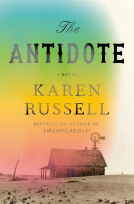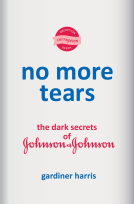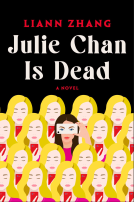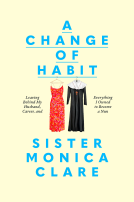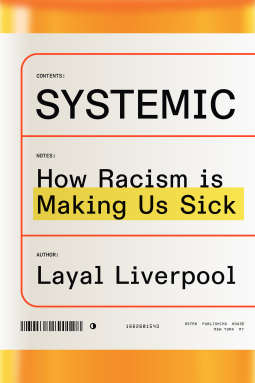
Systemic
How Racism Is Making Us Sick
by Layal Liverpool
This title was previously available on NetGalley and is now archived.
Send NetGalley books directly to your Kindle or Kindle app
1
To read on a Kindle or Kindle app, please add kindle@netgalley.com as an approved email address to receive files in your Amazon account. Click here for step-by-step instructions.
2
Also find your Kindle email address within your Amazon account, and enter it here.
Pub Date Jun 18 2024 | Archive Date Jun 11 2024
Astra Publishing House | Astra House
Talking about this book? Use #Systemic #NetGalley. More hashtag tips!
Description
Layal Liverpool spent years as a teen bouncing from doctor to doctor, each one failing to diagnose her dermatological complaint. Just when she’d grown used to the idea that she had an extremely rare and untreatable skin condition, one dermatologist, after a quick exam, told her that she had a classic (and common) case of eczema and explained that it often appears differently on darker skin. Her experience stuck with her, making her wonder whether other medical conditions might be going undiagnosed in darker-skinned people and whether racism could, in fact, make people sick.
The pandemic taught us that diseases like Covid disproportionately affect people of color. Here, Liverpool goes a step further to show that this disparity exists for all types of illness and that it is caused by racism. In Systemic, Liverpool shares her journey to show how racism, woven into our societies, as well as into the structures of medicine and science, is harmful to our health. Refuting the false belief that there are biological differences between races, Liverpool goes on to show that racism-related stress and trauma can however, lead to biological changes that make people of color more vulnerable to illness, debunking the myth of illness as the great equalizer.
From the problem of racial bias in medicine where the default human subject is white, to the dangerous health consequences of systemic racism, from the physical and psychological effects of daily microaggressions to intergenerational trauma and data gaps, Liverpool reveals the fatal stereotypes that keep people of color undiagnosed, untreated, and unsafe, and tells us what we can do about it.
Advance Praise
"Layal Liverpool has produced a work of towering importance that will undoubtedly change science and save lives, but it will also change the way you see yourself and the people around you. Systemic is beautifully written and scholarly but perhaps almost uniquely for such a book it is deeply personal and accessible, packed with compelling stories and fascinating details which are harnessed to make an impassioned argument for a better world." —Chris Van Tulleken, NYT bestselling author of Ultra-Processed People
Marketing Plan
MARKETING AND PUBLICITY PLANS • Cover reveal on Astra House’s social media channels • Major national and regional media campaign including print, online, radio, TV, and podcasts • Pitch first serial to national general-interest publication as well as by-lined Op Eds in major newspapers in advance of publication, feature stories, and profiles • Extensive book club and library outreach • Target outreach to Black-interest, science, women’s interest, and health reporters and publications, as well as high profile influencers who have been vocal about health inequity • Academic and nonprofit outreach • ARC giveaways
Available Editions
| EDITION | Other Format |
| ISBN | 9781662601675 |
| PRICE | $30.00 (USD) |
| PAGES | 320 |
Links
Available on NetGalley
Featured Reviews
I am currently writing a review for Rain Taxi....this should be coming out later in the year.. The work is quite good, going in directions that I did not think of. I am impressed by the critical thinking of the the writer...Liverpool thinks outside of the box, and I appreciate that as a reader. More to come.
DOUG
 Gab T, Reviewer
Gab T, Reviewer
This book is so good
Everyone should read this book
At first, I was a bit scared because of the medical aspect that it might be too technical or difficult to understand, but that was absolutely not the case.
Everything in this book is well explained, with concrete examples that make even the most precise biological concepts easy to grasp.
I learned so much. I was already aware of many of the racist ideas that still exist in medicine (especially in gynecology and about pregnancy and births), but there are so many other things I didn't know (probably some naivety on my part that made it feel so shocking how many criteria for diagnosis are still based on assumptions and racist ideas that have zero basis in science or reality).
I recommend this book to everyone but specifically to anyone working in the broad field of healthcare and medicine, because it is SO important to check your bias and to be well informed, to know how to challenge racist ideas (even and especially if they're what you were thought in school / by other doctors).
Thank you NetGalley and Astra Publishing House for the opportunity to read this ARC.
 Educator 1350042
Educator 1350042
Systemic is a must-read for anyone working on the front lines in healthcare or medical education. The references to current events as well as the COVID pandemic made the content that much more impactful and relevant. As a medical educator who has extensively studied and teaches in the social determinants of health, I am so impressed with this book. It reads like a scientific paper— which is so appropriate! I plan to share this with my students as soon as it is published!
Illuminating and academic delve into systemic racism in an accessible way. This book challenges readers to think critically and evaluate the world around them, to see and identify racism in science, research, and treatment in the medical field. Racism is so pervasive, that the manifestation in medical care is a result of living in a white supremacist society that refuses to change. This book is a must-read for everyone, even if you are uninvolved in the medical field. There is so much for everyone to learn, from understanding the existing stereotypes and barriers that Black people, and other people of color, face when they need healthcare, to understanding where these originate and continue to perpetuate in research and scientific spaces. Anyone working, or with an understanding of, science and research in any field will benefit from this book and should also look at their own institutions/fields to reflect.
I received a free ARC via NetGalley for this book. Thank you to the publisher and author!
 Reviewer 1089643
Reviewer 1089643
I'm going to make a rather odd suggestion up front: start with the conclusion. What an excellent wrap-up that effectively delivers all one needs to know about the goals and contributions of this text.
Let me also suggest a term that summarizes a lot of what Liverpool aims to highlight here, but with greater specificity than the unfortunately vague "systemic": medlining. Sadly, I can't say I've coined the term, as a Google Search points me to a 1998 article (https://www.washingtonpost.com/wp-srv/business/longterm/ethics/medlining.htm). The basic idea comes from redlining, or the practice of discrimination by way of caging in our out certain people based on perceived belonging to certain social groups, especially race. Redlining is about space, especially living spaces like neighbourhoods. Medlining is about medical practice: not physical offices or hospitals or care facilities, but structures embedded in the system, including tools used to make decisions about health, based on discriminatory notions about social identities, notably, again, race.
Liverpool is a wonderful science writer for the lay reader. She backs up her claims with academic research and other quality sources, while at the same time writing with clarity for those less in the know. My only wish was more images. The hardest part for me to wrap my head around was about genes and population sampling. I feel like a series of images illustrating how slicing and dicing the population based on (or without) different classifications, such as race, would have made it much easier to grasp.
Liverpool's focus is also narrow, focused largely on Black and White (her choice of capitalization) folks within the Western sphere, and there mostly the US and the UK. This is not so much her fault, given the state of medical research globally. It's kind of a case in point, really. She does try to draw in perspectives and research from other areas in nuanced ways. For example, how colourism is embodied in Filipinix communities with respect to both anti-Black racism and anti-Indigeneity.
I'd also be remiss to overlook some of Liverpool's more tenuous claims, like the association between perceived lifetime discrimination and dementia. This is a classic case of confusing correlation with causation. As an Oxford Ph.D., she should know better than to conclude to her lay audience that "racism clearly afects* our biology."
* Finally, there was some oddities in the text, like all cases of doubling being singular, e.g., f instead of ff. Perhaps this was an issue in the galley version.
Overall, a wonderful read, evidence-based, humane, and mightily convincing.
 Reviewer 1282685
Reviewer 1282685
Very well-written and clear - exactly what I was looking for at the perfect meeting of an academic exploration that does not require one to be an expert in the topic to understand. I applaud Liverpool for making this such an accessible piece. I don't very often read non-fiction because I tire of the way some authors almost make it a competition to make the information difficult to process. Not this book.
This book is fantastic.
I have previously read numerous books on racism in healthcare, and other forms of discrimination in healthcare such as sexism - and this is one of the best. Racism in healthcare is a truly fatal problem that we must prioritise. Every year people fall ill and suffer due to society’s racism. This book proves just how systemic and deeply embedded racism is within society. I found the chapter on race-based medicine particularly interesting and shocking, as I had no idea how many areas of medicine adjust results due to race.
Thank you very much for the copy of this book, I highly recommend it
Wow. People always have needed, and always will need, doctors, healthcare, hospitals, nurses, medicine, carers- The list goes on. And ever since the beginning of human history, we have worked hard to improve how we treat ourselves. We’ve developed medicines, pain killers, disinfectants, new technologies, vaccines, surgical techniques. And more recently we’ve began enhancing the way we provide healthcare with AI, while paying more attention than ever to mental health, neurodivergence, therapies, and more diverse diagnosis. You’d think that with so much improvement, the healthcare system, above all else, would be the least discriminatory when it comes to the race of the human being.
Turns out that’s not really the case. This book has never been more relevant.
In this book, Liverpool presents us with an incredibly important documentation of how racism systematically manifests itself into the healthcare system across the world, delving into stories from people all across the world, and dismantling the ever-living racist science and stereotypes practiced by doctors and medical schools worldwide.
This book is a must read for everyone, however I especially recommend it for those going into healthcare (ANY area in healthcare), as well as social sciences and politics. We all need to be aware of just how common and systemic the racism in our healthcare system really is, in order to dismantle and remove it completely.
 Reviewer 805047
Reviewer 805047
In "Systemic," Layla Liverpool, a science journalist and former biomedical researcher, bridges together her scientific expertise and journalistic acumen to shed light on the intricate ways racism manifests in our health systems and impacts individuals across the globe. Liverpool encourages readers to reflect on the broader implications of systemic racism on individual well-being and societal health. Her book provides a valuable resource for readers who seek to deepen their understanding of the complex interplay between race, health, and the systems that shape our lives. "Systemic" is a must-read for anyone committed to promoting health equity and dismantling the structures that perpetuate racial disparities in our societies. Liverpool's blend of scientific rigor, journalistic insight, and personal stories makes this upcoming release an essential addition to the conversation on racism and health.
Liverpool's background in virology and immunology adds a unique layer of depth to her exploration of the health gaps existing between racial and ethnic groups globally. She traces these disparities from pregnancy through early life and across the lifespan, providing a comprehensive examination of the systemic roots that perpetuate health inequities. The book explores the often-overlooked connection between health care disparities and the lived experiences of marginalized communities globally.
I appreciated Liverpool's meticulous examination of how racism is not only a social issue but a deeply ingrained health concern. She elucidates how systemic racism is internalized in the body, influencing health outcomes and exacerbating existing disparities. Liverpool goes beyond mere observation, dissecting the structural underpinnings of societies that deny equal access to a healthy living environment. Being from The Bronx where environmental injustice is a major issue this aspect of the book spoke powerfully to me. Her exploration of racism in the medical field, and how it reinforces existing inequities, is also particularly insightful.
As a black woman who navigated pregnancy during the tumultuous year of 2020 and faced the challenges of a COVID-positive status during my fourth trimester, I deeply appreciated the personal stories shared in this text. The inclusion of Serena Williams' testimony about her experience with pulmonary embolisms post-childbirth resonates profoundly, highlighting the systemic failures that disproportionately affect Black women's health.
Thank you to the author and publisher for the e-arc copy!
Thank you, NetGalley and Astra Publishing House for this advanced readers copy. This book needs to be required reading in every health class, public health program, medical School curriculum. I was aware of some of things brought up by this author as I am nurse working in women’s health for many years, but many of the topics written about were new. Racism touches EVERY aspect of life and health of men, women and children. We need to do better in how we care for people, the research studies that are conducted and the resources provided. Do better! We are all human. Thank you Layal Liverpool for showing what changes have been made recently, but just how far we still have to go.
This is a must read for anyone interested in the fight for health equity.
Liverpool begins with her own experience, discussing how long it took her to have a simple case of eczema diagnosed simply because of the color of her skin. But it's not just dermatology that racism is prevalent in health care--we see it in birth outcomes, HIV treatment, even in something as basic as how likely a doctor is to listen to your concerns and take them seriously. She discusses how micro- and macro- aggressions impact health just as much as a virus or infection, and the ways that racism impacts health independently of other factors such as socioeconomic status or gender.
As someone who works in a job that were part of the mission is to obtain health equity, and as someone with a MPH--I cannot recommend this enough. This is a fantastic primer for anyone coming into the conversation with little to no experience, and it's explained in such an accessible and clear way. Despite being a nonfiction book dealing with medicine and other anthropological aspects that can be convoluted and confusing, this was incredible straightforward and appropriately infuriating.
Because the fight for health equity impacts all of us, regardless of your race, gender, or socioeconomic status. And it's a worldwide concern--not something unique to the UK or the US as many politicians would lead us to believe. I cannot recommend this book enough to anyone who works in ANY healthcare discipline--from doctors, to patient access, to social services to nursing and everyone in between. As Liverpool suggests, it's going to take everyone to fix these deeply rooted systemic issues, and to do that we need to uncover and address our individual biases.
I eat up any book that delves into systematic oppression, especially using the healthcare system as a measure of maintaining racial lines.
Liverpool unravels how the healthcare system often fails people of colour within the realms of the western hemisphere (which is good to denote because even though racism is, across the board, a universal action, it is not a linear process and acts differently in varying spaces).
What I love in non-fiction, as seen in this book, is empathy, an emotional basis to ground academic findings and real-world data that coagulates into something alive, real and desperately in need of attention. Liverpool identifies the all-encompassing spread of racism, from research to the front lines, to patient care - the ideas and historical concepts that operate the health space =, sprouted through the minds of the colonizing body and held fast in modern-day medicine, are curated and unravelled, hed aloft to show readers how this harms people of colour, how it prevents them from being seen and heard, dismissed and harmed.
What a necessary read - I also recommend Inflamed: Deep Medicine and the Anatomy of Injustice by Rupa Marya and Raj Patel.
An eye opener of the extent to which systemic racism could, in fact be making people sick, especially in our outdated healthcare systems.
Systemic looks at Layal Liverpool's own experience of discovering she had eczema, after believing it was something much worse as Dr's weren't aware of how it showed up on darker skin, to looking at what else is being missed or ignored due to the systemic racism, microaggressions and stereotypes found in the healthcare systems.
I will be recommending this book to everyone, I think it's so important that we are all aware of what harm systemic racism is doing. This book shows empathy and real heart at it's core to help everyone understand what is happening and more importantly what needs changing.
Thank you for this ARC
I found this collection to be really interesting and I'm so thankful to Layal Liverpool, Astra House Publishing, and Netgalley for the physical and digital copy of this book before it's set to publish on June 18, 2024.
 Emily T, Educator
Emily T, Educator
This book is excellent, thought provoking, and incredibly well researched. It is likely to upset some people- but it only tells the truth. As a clinical psychologist and professor working in mental health equity, this book will become an essential reading for my students. I was grateful for the author's skill at deftly integrating science throughout the book to show how racism impacts health and healthcare practices. Many other works do not go far enough to be clear about the connections and how deeply interwoven racism is into our healthcare systems- but this book explicitly makes those complex connections using a broad set of evidence spanning decades. This is an irreplaceable resource for me and others in my field. I would recommend it to anyone working in healthcare, health research, and those who are interested in understanding how racism impacts every step we take.
 Katie H, Reviewer
Katie H, Reviewer
In Systemic: How Racism is Making Us Sick, Layla Liverpool explores race disparities in healthcare. It is a science-based, data-driven, global exploration of racism’s effects on health. She maps out the toll it takes around the world, and why such health inequalities exist and persist. The text is well written, easy to follow and filled with evidence. The next advance in healthcare should be tackling systemic racism.
 J. K, Reviewer
J. K, Reviewer
Thanks to the publisher and Netgalley for this eARC.
In her groundbreaking book, “Systemic: How Racism Is Making Us Sick,” science journalist Layal Liverpool delves deep into the pervasive and often overlooked impact of racism on health. Through meticulous research and powerful storytelling, she uncovers the shocking truths about how racial disparities manifest in healthcare.
Liverpool’s exploration takes us beyond the surface, revealing the intricate web of systemic racism that affects us all. Here are the key takeaways:
The Health Threat of Racism:
Liverpool unearths the shocking facts behind how racism directly impacts health outcomes.
Scientific bias exacerbates this threat, leading to worse treatment for everyone.
We are collectively more ill, and our potential for scientific discoveries is hindered.
Debunking Biological Myths:
Refuting the false belief that there are inherent biological differences between races, Liverpool shows that racism-related stress and trauma can lead to biological changes.
These changes make people of color more vulnerable to illness, challenging the myth of illness as the great equalizer.
Racial Bias in Medicine:
The default human subject in medical research is often white, perpetuating racial bias.
Fatal stereotypes keep people of color undiagnosed, untreated, and unsafe.
Daily Microaggressions and Intergenerational Trauma:
Liverpool explores the physical and psychological effects of daily microaggressions.
She sheds light on the intergenerational trauma caused by systemic racism.
What Can We Do?
Liverpool calls for awareness, education, and systemic change.
By dismantling racist structures, we can create a healthier, more equitable future.
“Systemic” is an urgent wake-up call—a call to action for a world where health is truly accessible to all. Layal Liverpool’s eloquent prose and unwavering commitment to justice make this book essential reading for anyone who cares about the intersection of health, race, and humanity. 📖🌍🌟
 Jessica B, Reviewer
Jessica B, Reviewer
**⭐️⭐️⭐️⭐️⭐️ | A Crucial Exploration of Racism and Public Health**
Layal Liverpool’s *Systemic: How Racism Is Making Us Sick* is a powerful and meticulously researched examination of the deep connections between racism and health disparities. Liverpool expertly unpacks how systemic racism permeates healthcare, education, and housing, leading to profound and lasting impacts on public health. The book is both informative and deeply compelling, blending hard-hitting data with personal stories that bring the issues to life. Liverpool’s clear and accessible writing makes complex concepts understandable, urging readers to confront the ways racism affects us all. This is an essential read for anyone committed to understanding and addressing the roots of health inequality.
 Tosin S, Reviewer
Tosin S, Reviewer
This book took me some time to get through because it was both powerful and painful. This was such an informative read and reminded me how important it is to advocate for yourself within the healthcare system.
I thought this was great, and so readable! I loved how many topics she covered and the personal anecdotes that she included, I'd recommend this to people who work in healthcare or healthcare-adjacent, or just if you care about the health of everyone and want to better understand how we are where we are!
Readers who liked this book also liked:
Julie Demyanovich
Crafts & Hobbies, Entertainment & Pop Culture
Vanessa Lillie; Layne Fargo; Cate Holahan; Kimberly Belle
General Fiction (Adult), Mystery & Thrillers
Kristen L. Berry
General Fiction (Adult), Multicultural Interest, Women's Fiction



